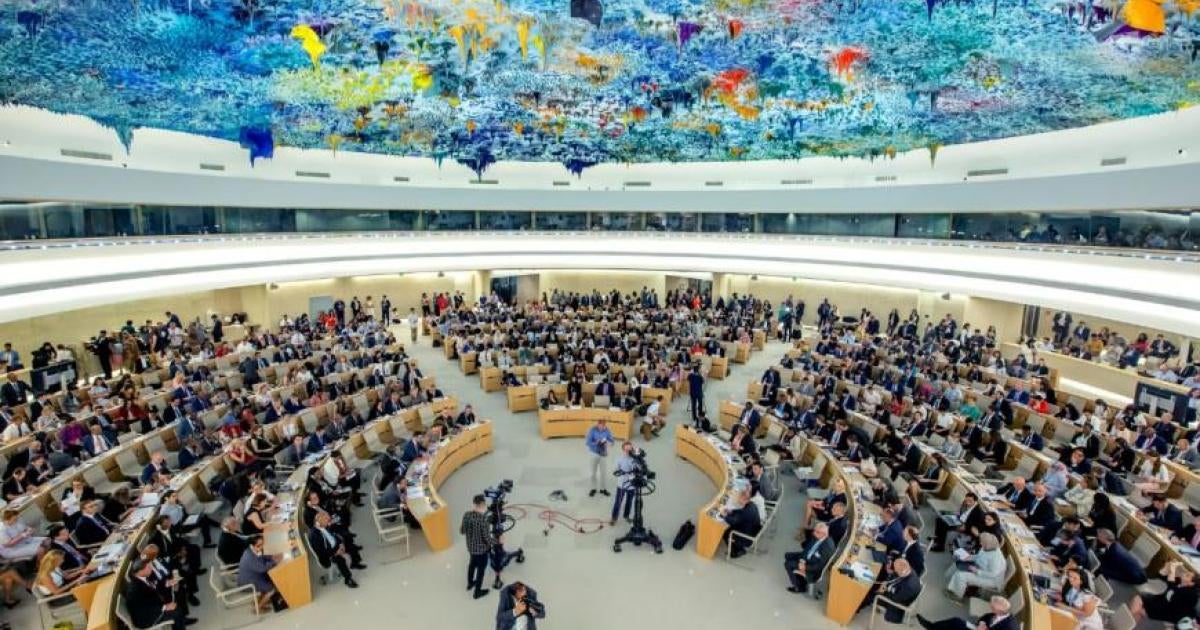Prominence of Central Asian Countries on The Human Rights Council Is an Opportunity for Change
This year, for the first time, three countries from Central Asia will be members of the United Nations Human Rights Council, the UN’s most important intergovernmental human rights body.

Kyrgyzstan will join Uzbekistan, Kazakhstan, and the other 44 members at this year’s opening session on February 27.
The council’s founding resolution expects members to “uphold the highest standards in the promotion and protection of human rights” and to co-operate fully with the council. It is vital that all three countries prioritize these criteria.
These Central Asia governments see membership on the council as an opportunity to play a more significant role on the international stage and have made pledges regarding their planned actions while members of the council. Kyrgyzstan, for example, committed to strengthening cooperation with international human rights mechanisms, boosting civil society, and enhancing women’s and children’s rights.
The region’s newfound prominence on the council plays out against a backdrop of very serious human rights concerns in Kazakhstan, Uzbekistan, and Kyrgyzstan. In Kazakhstan, the government has failed to properly investigate the January 2022 events, when over 230 people died in clashes, with evidence that law enforcement was responsible for deaths. In Uzbekistan, following protests in the autonomous region of Karakalpakstan last July, in which at least 21 people were killed, authorities have targeted the protesters and failed to investigate those responsible for the deaths. In Kyrgyzstan authorities have in recent months cracked down on human rights and opposition activists and against independent media. On international issues, council members should address human issues on their merits, applying a principled approach, not letting political interests obscure their positions, especially on country specific resolutions.
The record shows that politics has sometimes guided votes cast by Uzbekistan and Kazakhstan on the council, including their votes last year against holding a debate on the human rights situation in Xinjiang, China, despite the UN’s human rights office finding that abuses there may amount to crimes against humanity. Council membership should not be seen by countries as a reward for their international role but an opportunity to improve human rights both at home and abroad. Let’s hope the Central Asian trio grasp this.
Read the full article at the original website
References:
- https://kyrgyzstan.un.org/en/203626-un-congratulates-kyrgyz-republic-its-election-un-human-rights-council
- https://www.hrw.org/world-report/2023/country-chapters/kazakhstan
- https://www.hrw.org/world-report/2023/country-chapters/uzbekistan
- https://www.hrw.org/world-report/2023/country-chapters/kyrgyzstan
- https://www.hrw.org/news/2022/12/20/kazakhstan-no-justice-january-protest-abuses
- https://www.hrw.org/news/2022/01/26/kazakhstan-killings-excessive-use-force-almaty
- https://www.hrw.org/news/2022/11/07/uzbekistan-police-abuses-autonomous-region-protests
- https://www.hrw.org/news/2023/01/31/uzbekistan-16-year-sentence-autonomous-region-protests
- https://www.hrw.org/news/2022/11/18/kyrgyzstan-draft-law-threatens-independent-groups
- https://www.hrw.org/news/2022/10/25/kyrgyzstan-arrests-activists-en-masse
- https://www.hrw.org/news/2022/11/25/kyrgyzstan-expelled-journalist-should-be-allowed-return-russia
- https://www.hrw.org/news/2023/01/26/kyrgyzstan-lawsuit-seeks-shut-independent-media-outlet
- https://hrcmeetings.ohchr.org/HRCSessions/RegularSessions/51/DL_Resolutions/A_HRC_51_L.6/Voting%20Results.pdf
- https://www.hrw.org/news/2022/09/29/kazakhstan-should-hear-out-un-rights-abuse-china
